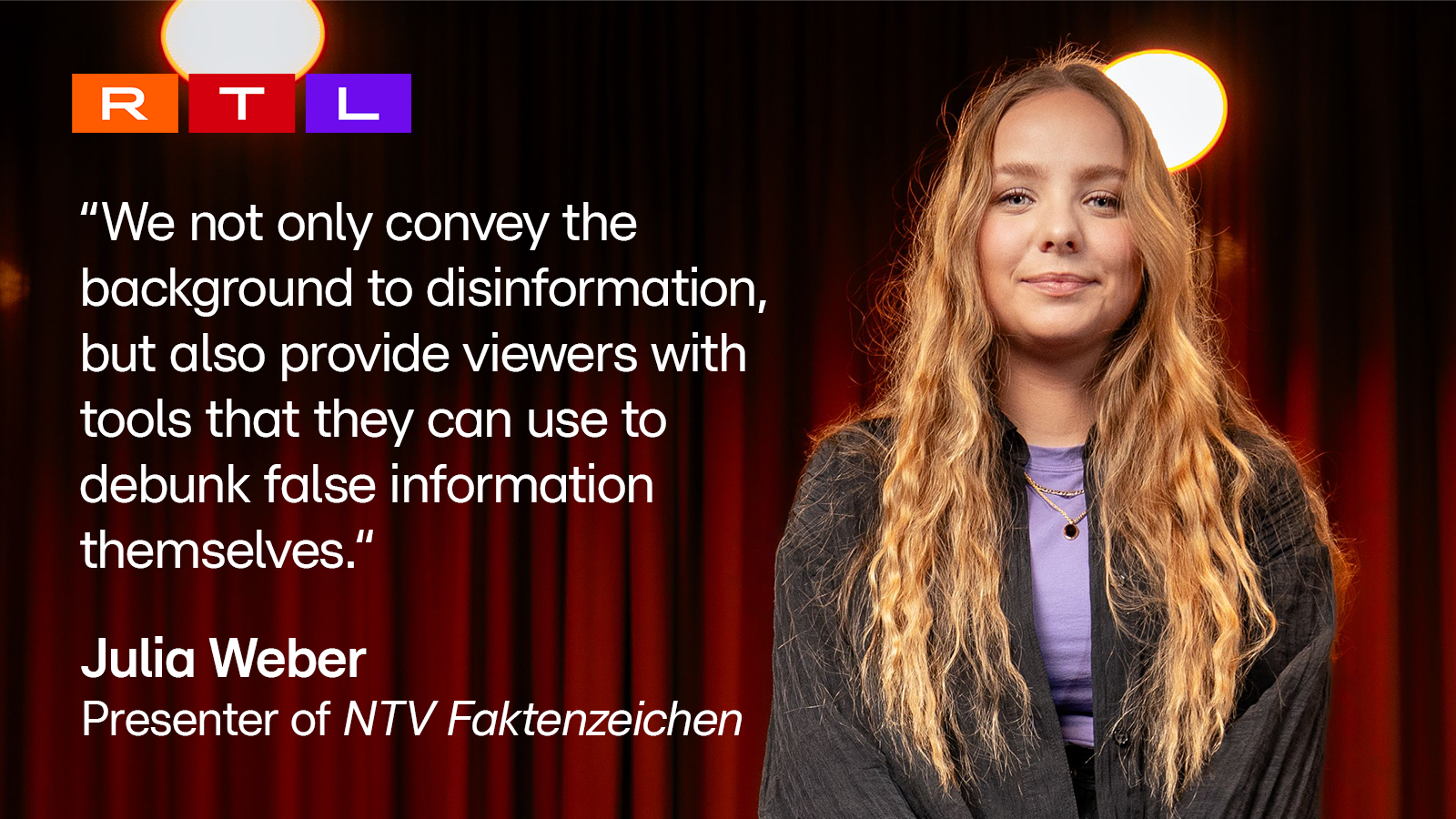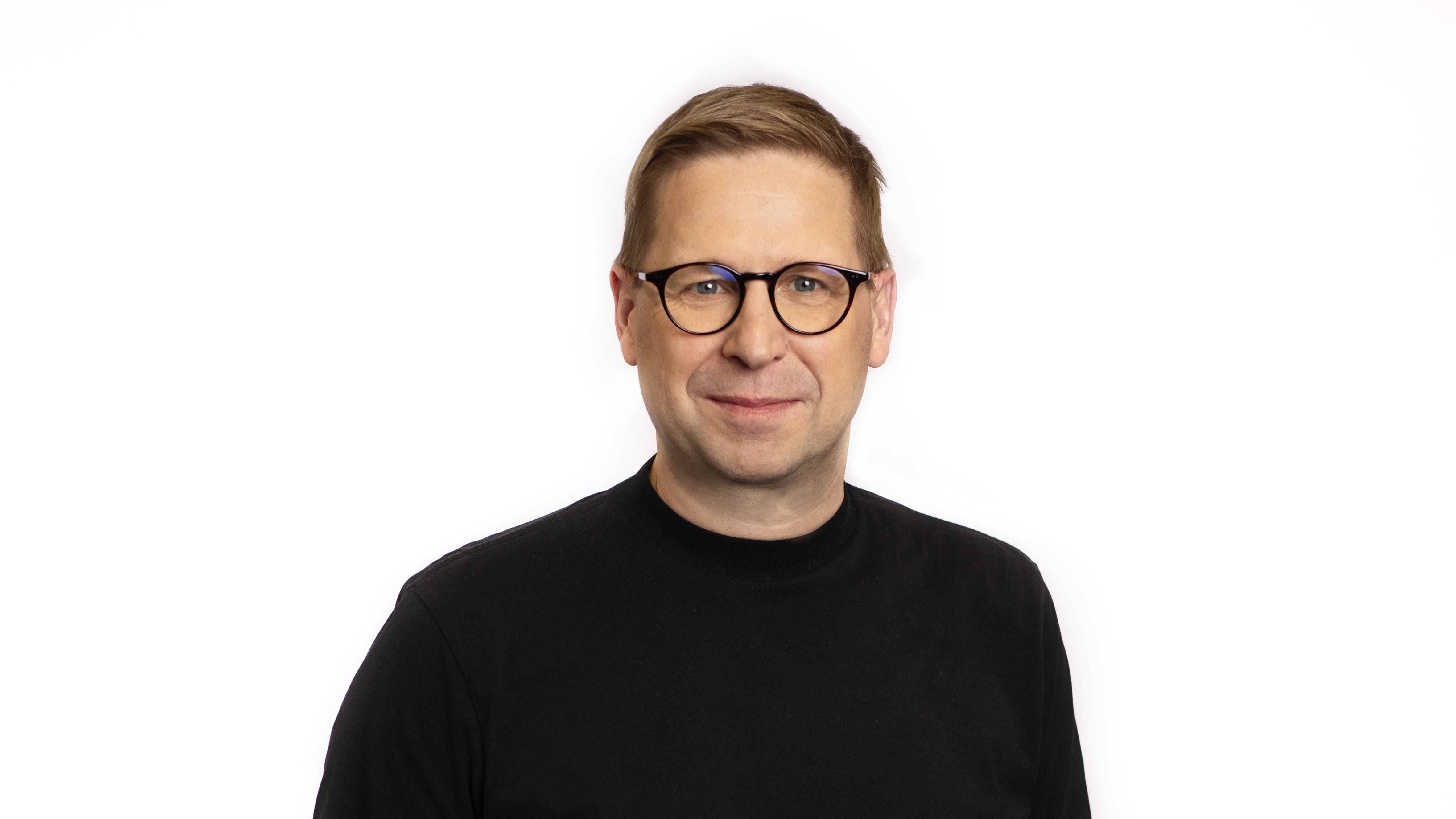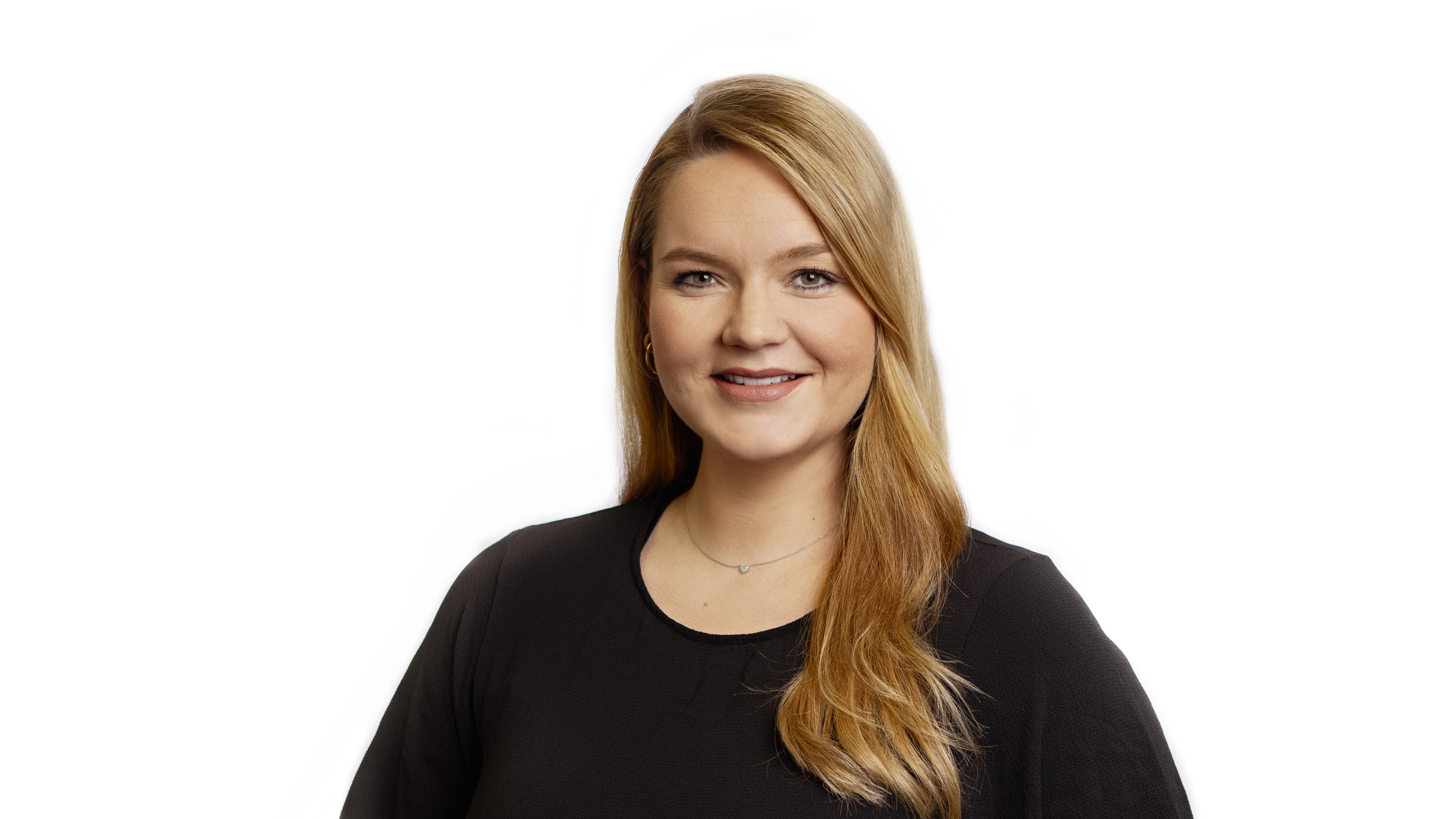
Fact or fake? – A question RTL Deutschland’s new format NTV Faktenzeichen (NTV Fact check) aims to answer in every episode of the programme. With disinformation on the rise in Germany, it is more important than ever to be able to identify when the truth is being manipulated.
NTV Faktenzeichen, which will premiere on 5 February, will provide viewers with tools that they can use to debunk false information themselves, says Julia Weber, a graduate of RTL Deutschland’s journalism school, who is the presenter of the new programme. In an interview with RTL Group, she talks about how her studies prepared her for her new role, and how she personally deals with the – sometimes overwhelming amount of – information on social media.
1. Tell us about the origins of NTV Faktenzeichen: Who came up with the idea and how was it developed further?
The original idea came about as part of an innovation lab at the RTL School of Journalism in autumn 2021, initially in the form of TV reports. Immediately after presenting our idea, NTV showed interest.
In May last year, I was given the opportunity to further develop the format for NTV into a shorter and more topical series. We then produced the pilot episode in summer 2023. Now you can watch the first episode of NTV Faktenzeichen on 5 February at 19:30!
2. The first episode will be about AI and deepfakes – topics everyone is talking about right now. How will your approach be different? Who is behind the RTL/NTV verification team?
We take the viewers on a search for the truth. We try to unravel even the smallest details of disinformation, and viewers can follow along every single step. We not only convey the background to disinformation, but also provide viewers with tools that they can use to debunk false information themselves. This transparency sets us apart from other formats.
Our new format makes NTV’s daily, in-depth research visible. Our work is based on facts. For challenging tasks, we bring the RTL/NTV verification team on board, just like in real-life, everyday journalism.
My colleague Burak Kahraman, Verification Expert at NTV, can best describe what and who is behind the verification team.
Burak Kahraman, Verification Expert, says: "We are the first point of contact for sensitive news and in breaking news situations, such as in the event of war. We assess images, videos and audio material, as well as stories and people.
The team has access to a wide range of tools for image recognition and social media research in order to stay up to date, even in cases where images are artificially generated. Thanks to our years of experience, we are well-equipped to combat any form of online disinformation."
3. According to a Bertelsmann study, almost half of Germans think that they cannot correctly assess the authenticity of information on the internet. How will you try to speak to the younger generation, which is particularly exposed to disinformation on social media?
In NTV Faktenzeichen, we have deliberately opted for a modern and young narrative structure and image design in order to appeal to the younger target group. For example, the commentary does not take place in a separate studio, but in the editorial office and the conference zones.
We also address the viewers directly and meet them at eye level. I think this is particularly important in the fight against disinformation. It also gives us a chance to reach the younger generation. Some of our findings and research are also published on YouTube and Instagram – on platforms where disinformation is created and where precisely this target group hangs out.
4. You graduated from the RTL School of Journalism in 2023. What's your highlight from your studies? How has the programme prepared you for your current role at NTV?
My time at the RTL School of Journalism was two years full of highlights – quite difficult to choose one specific point. The development of our format NTV Faktenzeichen, together with my colleagues Sophia Klein, Kai Schulik and Alexander Kumpf, was definitely exciting and formative. The creative and intensive work on the format brought us closer together. My personal highlight was our excursion to New York and Washington, where we learned a lot – but also simply had a great time that brought us together as colleagues.
The incredibly good presentation and speech training sessions prepared me for my role as a freelance author and presenter at NTV, which, together with the professional coaching programme, also gave me the confidence to embark on this adventure. Of course, I can also build on my research and verification knowledge from our seminars at the RTL School of Journalism – the place where I made the first contact with the verification team.
5. What drove you to focus on disinformation as a journalist? What's your personal approach in dealing with the abundance of content that we see on social media, TV, radio, print...?
The special thing about disinformation is that it has always existed and it will stay with us in the future. The problem is not new, but simply adapted to current life. During discussions with several experts, I realised that the most powerful weapon against disinformation is awareness. I believe that one of our tasks as journalists is to raise awareness of disinformation..
The amount of content on social media can be really overwhelming and even I can't always deal with it in the best possible way. TikTok, Instagram, X – there's information everywhere. What helps me the most is the conscious use of social media and other media, i.e. I actively reflect on what I see and don’t simply scroll through the flood of information and content. Of course, algorithms are making this increasingly difficult. I think making a conscious and balanced selection of the sources you follow and the “media menu” that we consume on a daily basis helps a lot.

Oliver Fahlbusch
Executive Vice President Communications & Investor Relations, RTL Group
+352 / 24 86 5200

Irina Mettner-Isfort
Vice President Media & Investor Relations
+49 221 456 56410